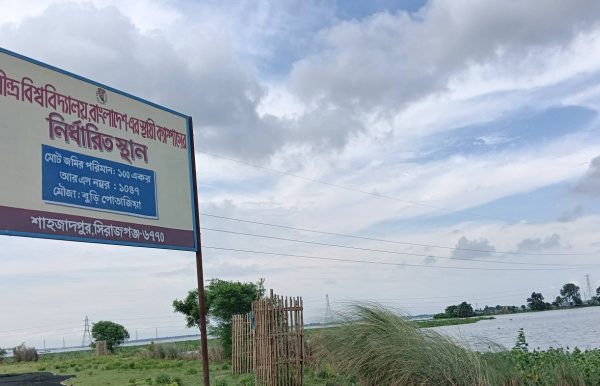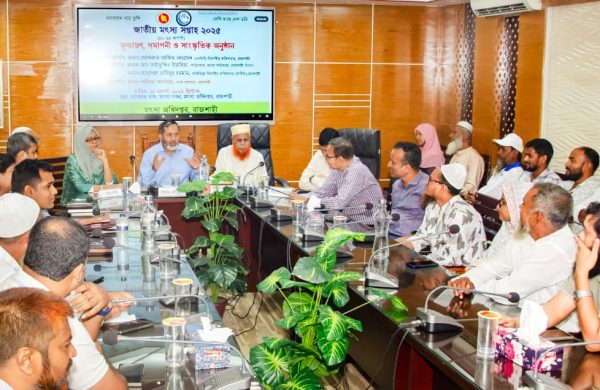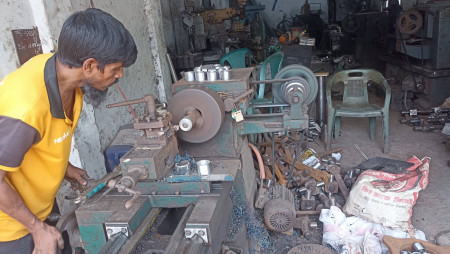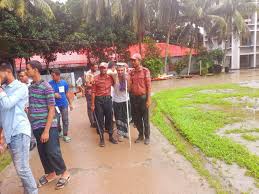Jute sticks now a lucrative byproduct for Pabna farmers
- Update Time : Monday, August 25, 2025
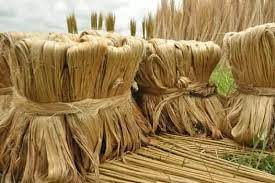
Pabna Correspondent:
Jute farmers in Pabna have made a substantial amount of income additionally from jute sticks this year apart from jute fibre.
Once upon a time, jute sticks were only used for fuel and fencing in village houses. Now its demand has increased due to several other uses. Just as jute is being sold at a high prices in the markets so is jute sticks.
Jute sticks are now being sold in three to four times higher quantity than in the past.
As a result, jute farmers are earning an additional income of Tk8,000 to Tk12,000 per bigha of jute, depending on production and region.
Accordingly, there is a possibility of selling jute sticks worth about Tk3.25 billion (Tk 325 crore) from Pabna district this year, agricultural officials said. This is an additional income.
As a result, farmers are becoming more attracted to jute cultivation, according to agricultural officials.
According to the Department of Agricultural Extension, Pabna, the size of jute plants varies in different regions of the district. The taller the jute plants are the higher the demand and price of jute sticks are. Again, the price varies depending on the areas. It is known that once upon a time, jute sticks were mainly used to make fences for the houses of poor families in the village. It was widely used as fuel also. But due to the benefits of technology, jute sticks have now gradually become a profitable product.
The use of jute sticks has increased in various factories, including particle board factories and betel fields.
Currently, the jute fibre stripping season is ongoing. Jute fibre and jute sticks are now being sold in various markets in the district. Jute sticks are supplied from Pabna to various districts. In particular, the bean farmers of Ishwardi Upazila, famous for bean cultivation, purchase large quantities of jute sticks for their fields in Kushtia and Jhenaidah districts. Farmers are now busy drying jute fibre and jute sticks. Jute sticks are being dried for miles along the rural roads.
Many wholesalers are buying jute straw from there. Jute sticks are being dried for miles on both sides of Suntijola and both sides of Ekdanta-Debottar road in Atghoria upazila of the district.
The scene is same all over the district, including on the banks of various rivers and waterbodies in Chatmohar, Bhangura, and Faridpur upazilas. Jute farmers in Pabna region said that jute was currently being sold in the market at a price of Tk 3,200 to 3,800 per mond (40 kg). And jute sticks are being sold for Tk8,000 to Tk12,000 per bigha. However, the price varies depending on the region.
Farmers from Pateshwar village in Atgharia upazila told that this year they are selling 100 jute sticks to traders for Tk 700 to 1000; which was sold for Tk 400 to 700 last year. They also said that the money from selling jute sticks is being used to cover the cost of cutting and spreading jute from the farmers’ land with a small amount of money. This is making some profit for the farmers.
Khairul Islam, a farmer from Failjana area of Chatmohar upazila, said that jute cultivation required a lot of expense and hard work. However, this year, farmers are benefiting from the good price of jute sticks.
Amirul Islam, a farmer from Santoshpur village in this area, said that those whose jute has grown in size were getting good prices for jute sticks. Jahangir Alam Pramanik, deputy director of the DAE, Pabna told Journalist “Jute has been cultivated on 42,685 hectares of land in nine upazilas of Pabna this year; which has exceeded the target of cultivation. And the demand for jute by-product jute sticks is increasing day by day in the market as it is mainly used as fuel, for fencing in the villages, and for cleaning dishes The ash of jute sticks is used for cleaning dishes.It is also used for cleaning teeth.”
“It is most commonly used for making betel leaves platforms in fields. Jute farmers are making a handsome income by selling jute sticks at a good price.”


